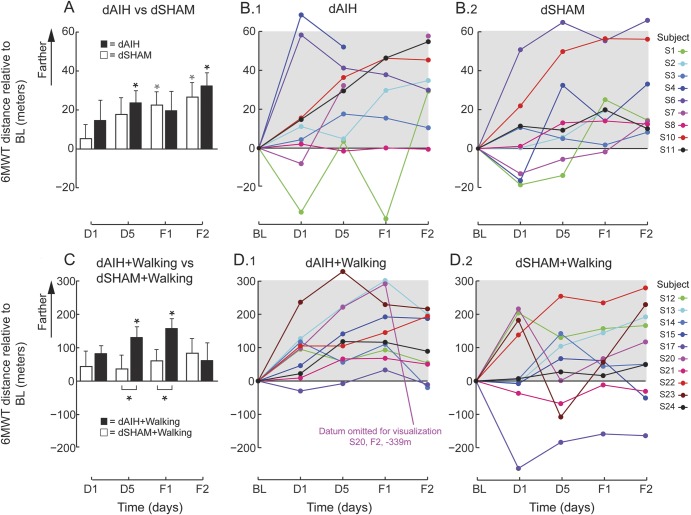Figure 3. dAIH-induced sustained increases in overground walking endurance in persons with chronic incomplete spinal cord injury.
(A) Bars represent mean ± 1 standard error changes in 6-Minute Walk Test (6MWT) distances (meters) across all subjects at each time point for either daily acute intermittent hypoxia (dAIH) (black) or daily normoxia (dSHAM) (white). Asterisks indicate significance relative to baseline (BL) (repeated-measures linear mixed model, p < 0.05) and brackets with asterisks indicate significant differences between interventions dAIH and dSHAM (repeated-measures linear mixed model, p < 0.05). (B) Subject changes in 6MWT distances (meters) relative to baseline (BL) across days 1 (D1) and 5 (D5) and follow-ups 1 (F1) and 2 (F2) during dAIH intervention (dAIH, B.1) and during dSHAM intervention (dSHAM, B.2). (C) Same mean comparisons as in panel A for dAIH with daily overground walking (dAIH + walking, black) and dSHAM + walking (white). (D) Same subject trends as in panel B for dAIH + walking (D.1) and dSHAM + walking (D.2).

